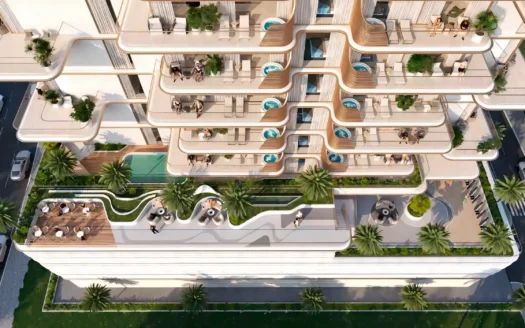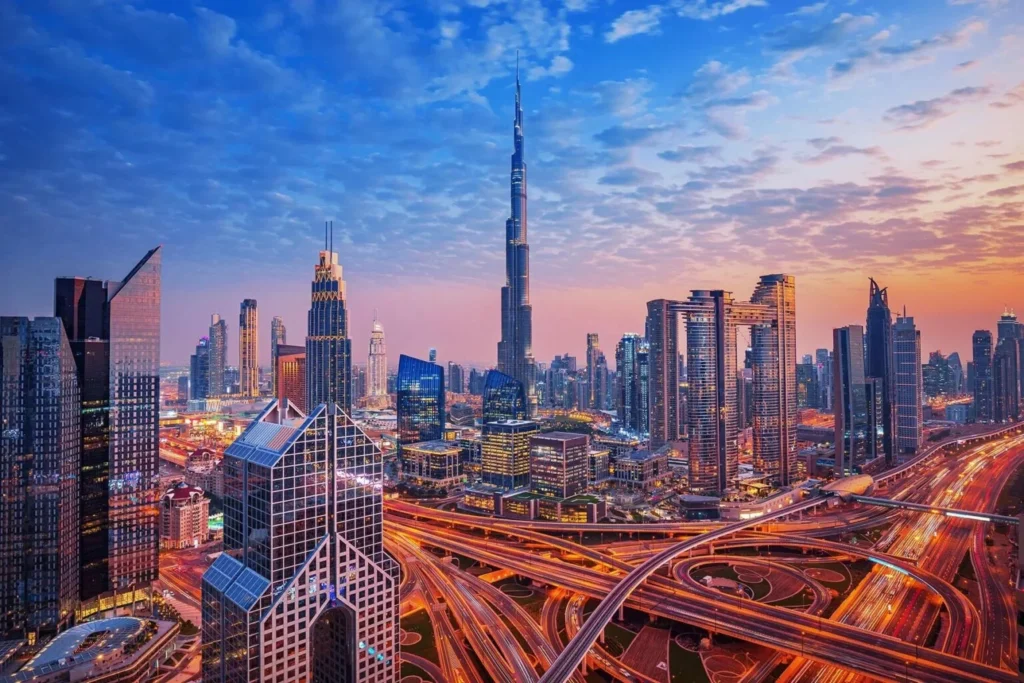Dubai: The World’s Investment Magnet – A Numbers Game
Dubai’s Economic Resilience: A Tale Told by Numbers
Dubai has become synonymous with economic vibrancy and growth, a feat underscored by significant statistics and reports. In this blog, we delve into the reasons behind Dubai’s magnetism for global investment, supported by numbers and insights from various economic indicators.
Traffic Congestion: A Sign of Economic Health
- Indicator of Activity: The bustling streets of Dubai, similar to major cities like London and New York, are not just a sign of traffic but a testament to the city’s booming business activities.
Real Estate: Beyond the ‘Bubble’ Myth
- Rising Rents: Contrary to the ‘bubble’ fears, Dubai’s real estate market exhibits a healthy increase in rents, with a reported rise of 22-24%, indicating strong demand.
- Alignment with Economic Growth: The real estate sector in Dubai is closely linked to its aggressive economic agenda, rather than just sporadic price increases.
GDP Growth: Outperforming Global Averages
- Dubai’s GDP Growth: Dubai’s GDP growth stands at an impressive 4%, significantly surpassing the global average of 2.4% as projected by the World Bank and IMF.
- Comparison with Major Economies: This growth rate places Dubai ahead of many established economies, including the U.S., which hovers around 1.4%.
Investment Inflows: Record-Breaking Numbers
- Record Investments: Dubai witnessed a staggering investment inflow of AED 528 billion in a single year, marking the first time the market hit half a trillion.
- Cash Transactions: Approximately 80% of transactions in Dubai’s real estate market are cash-based, indicating strong investor confidence and financial stability.
Combatting Money Laundering: A Transparent Economy
- Strict Regulations: Dubai has implemented stringent anti-money laundering laws and KYC processes, ensuring transparency and legality in financial transactions.
- Real Estate Monitoring: The real estate sector, along with Free Zone companies, legal, and accounting firms, are under close scrutiny to prevent illicit financial activities.
Tourism and Hospitality: An Undersupplied Market
- Room Shortage: Despite having 154,000 hotel units and 23,000 holiday home apartments, Dubai faces a shortage, indicating a premium demand in the tourism sector.
- Future Projections: With projects like Palm Jebel Ali poised to add 400,000 hotel rooms, Dubai is gearing for massive tourism growth aligned with its D33 agenda.
The Ripple Effect of Global Issues
- Stable Amid Global Tensions: Despite global economic tensions, such as those between India and Canada, Dubai’s diverse and robust economy remains largely unaffected.
- Attracting Global Millionaires: Dubai is increasingly becoming the destination of choice for millionaires worldwide, looking for stability, lifestyle, and investment opportunities.
Aligning Real Estate with Economic Goals
- Intentional Development: Dubai’s real estate growth is part of a deliberate strategy to support the city’s overarching economic ambitions, including tourism and commercial ventures.
Conclusion: Dubai’s Unwavering Investment Appeal
Dubai’s economic indicators tell a story of resilience, growth, and opportunity. The city’s ability to outpace global averages in GDP growth, its proactive approach to ensuring financial transparency, and its ambitious real estate and tourism projects position it as a global magnet for investment. The numbers and reports paint a clear picture: Dubai is not just surviving; it’s thriving, setting a benchmark for economic vitality on the world stage.


